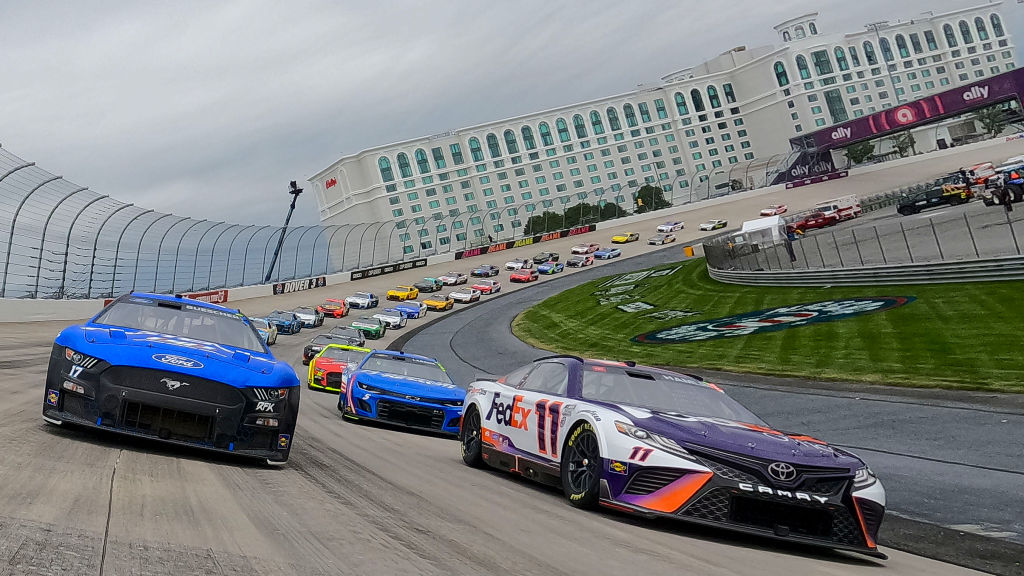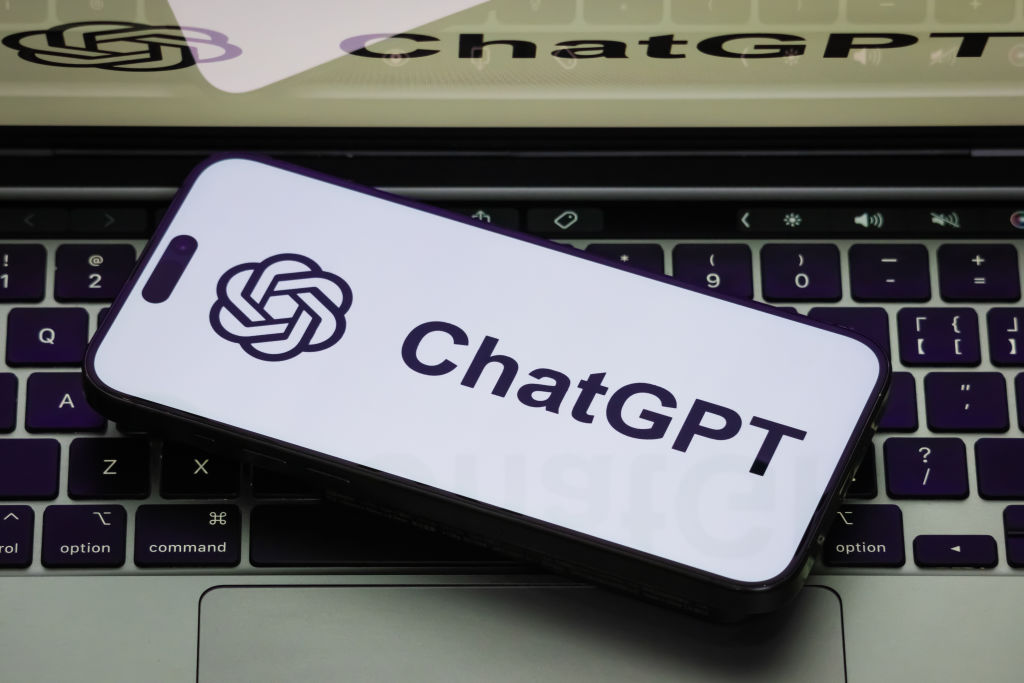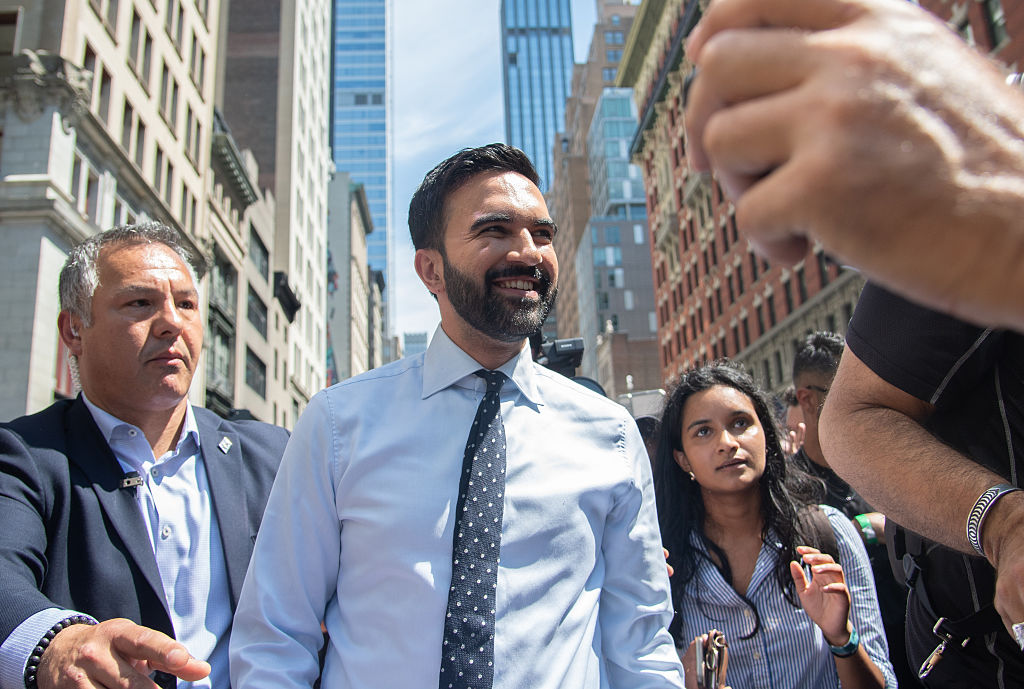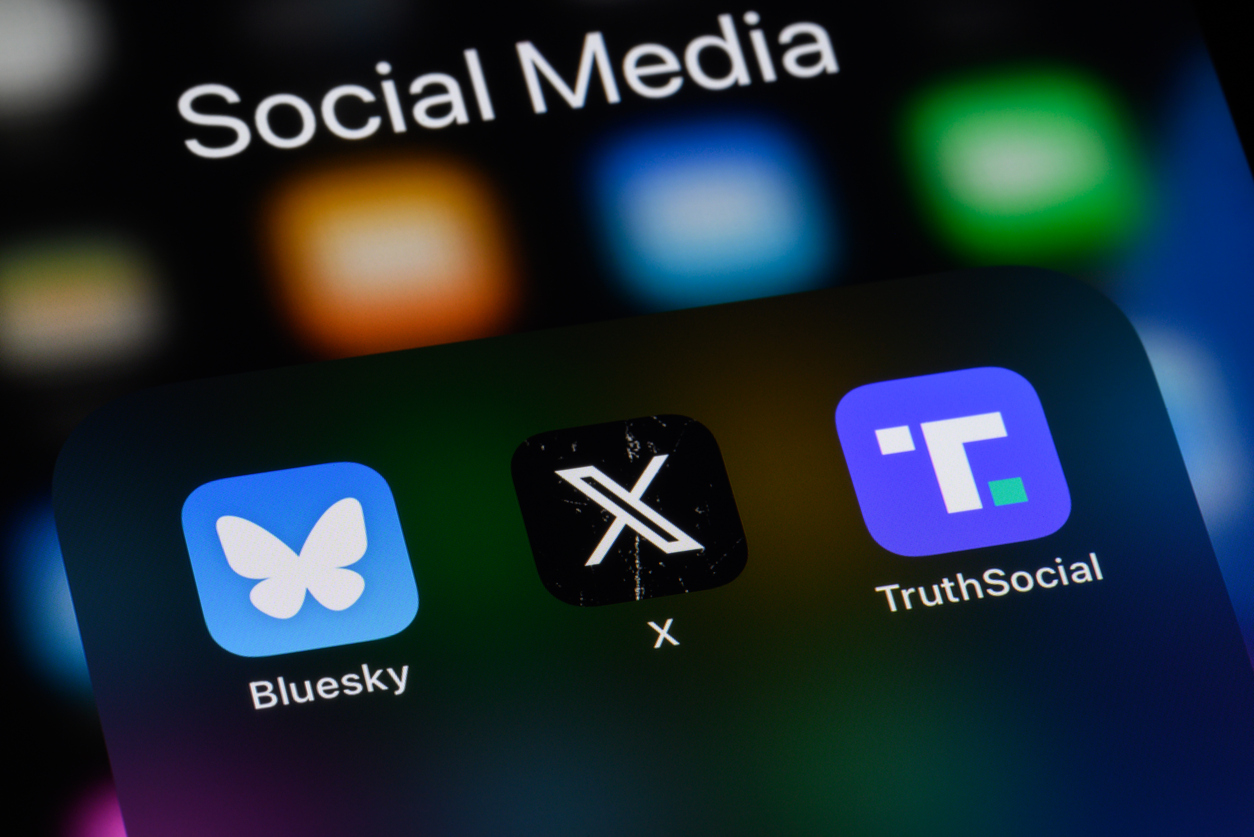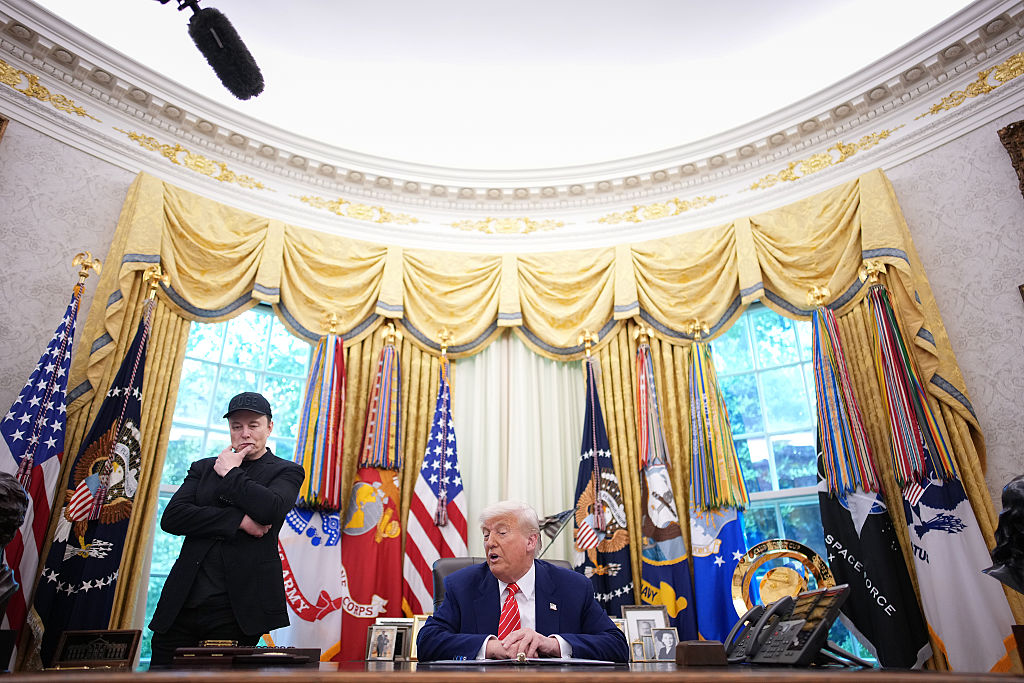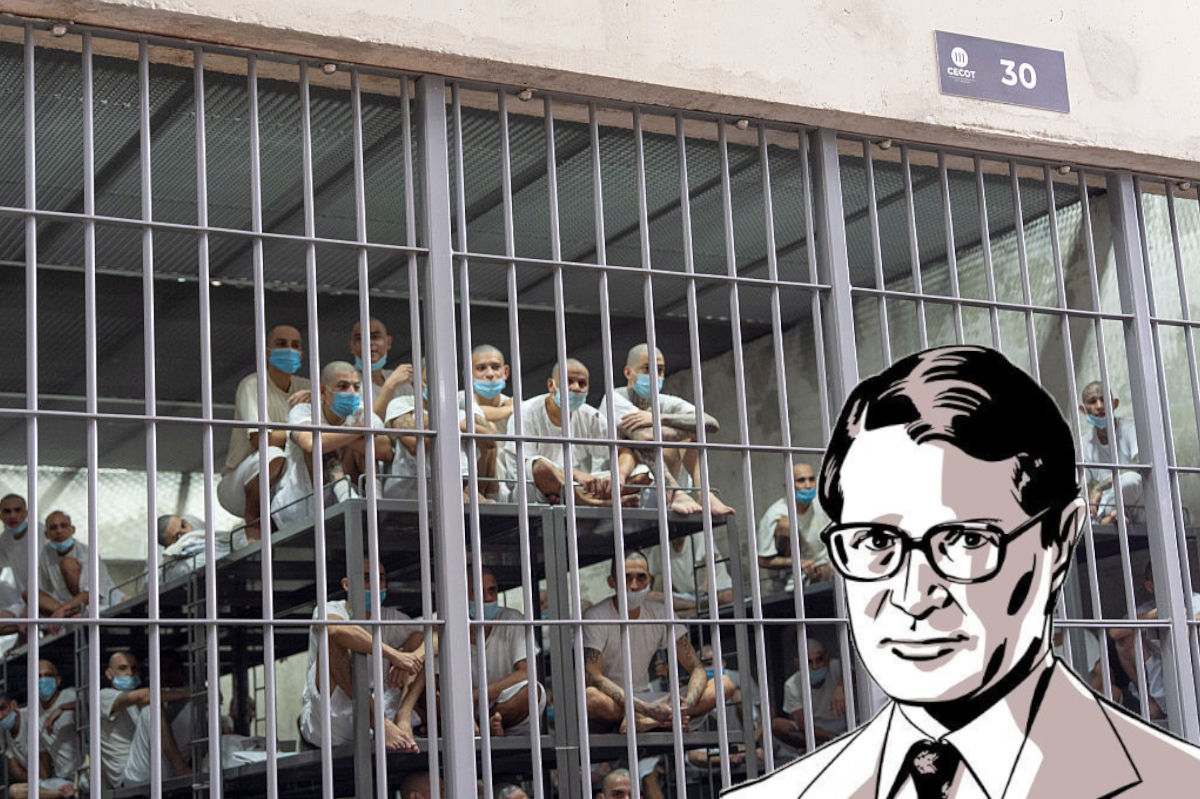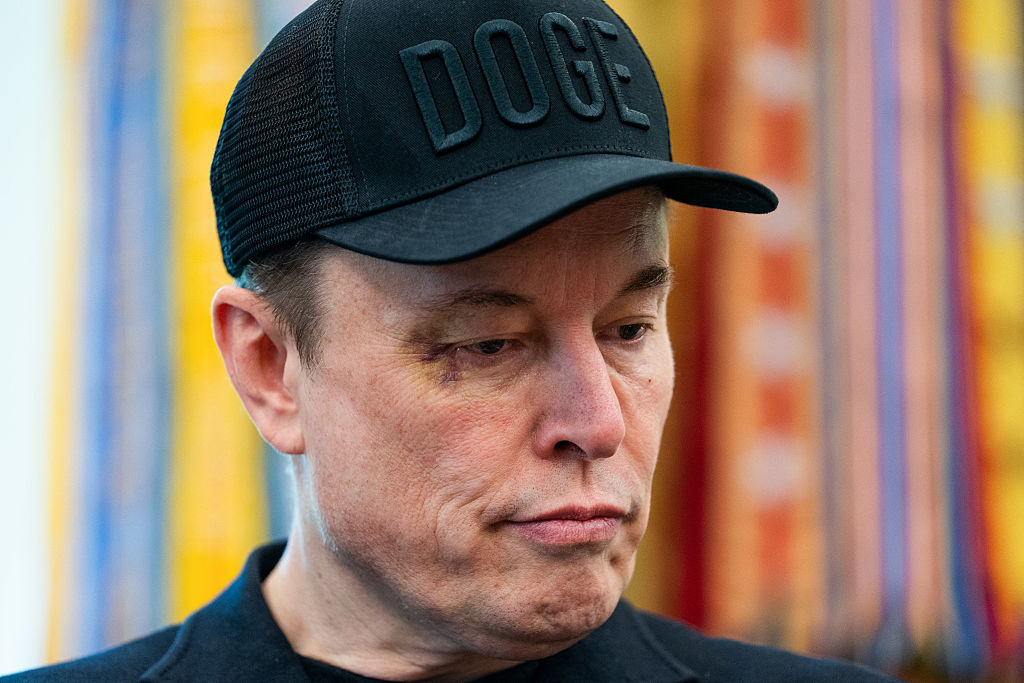It’s Cinco de Mayo, and if you so much as think about using this day to indulge in Chili’s Margarita of the Month, I will have you undergoing sensitivity training faster than you can say “extra salt on the rim.”
You see, applying a firm image to a person, thing, or group is wrong (even if it means massive profits for our Mexican neighbors by way of 335,000 gallons of tequila consumed on a single May 5). Or at least NASCAR thinks so, as the corporation plays politically correct whack-a-mole with drivers who say things they don’t like.
The latest victim of almost-cancel culture is Denny Hamlin. Last Sunday’s race at Talladega Superspeedway ended with Kyle Larson “battling for the win approaching the start-finish line,” reports the Charlotte Observer. “Upon doing so, Larson took out both of Hamlin’s 23XI cars by hitting the No. 45 Toyota driven by Kurt Busch, who rammed the outside wall after contact and immediately bounced into the No. 23 Toyota driven by Bubba Wallace.”
Hamlin had every right to be miffed over Larson’s impulsive (and dangerous) maneuver. Heck, in this day and age, Hamlin could probably sue Larson for emotional distress or some such thing. Instead, Hamlin chose to diffuse the situation with humor and shared a tweet comparing Larson (who is half-Japanese) to the Asian woman driver in a Family Guy clip poking fun at the stereotype.
Hamlin followed-up the tweet by writing:
Let me say this. I tweet because A it’s funny as sh*t. B because we are friends. Oh and C. Yes I’m aware I wrecked him at Atlanta… lighten up people!!! Have a laugh and enjoy the day.
But NASCAR neither laughed nor seemed to enjoy the day. Rather, they demanded Hamlin undergo sensitivity training. He deleted the tweet after a mere seven hours and has since apologized, saying he understands “how some people could find it offensive.”
(Larson, by the way, was himself suspended from NASCAR for a spell back in 2020 for uttering the N-word on his headset during a virtual race. He was also mandated to undergo sensitivity training and he also groveled, saying he understood “the damage is probably unrepairable.”)
NASCAR’s Member Conduct Guidelines are a page out of the most elite liberal university’s handbook, with an entire section dedicated to diversity and inclusion. While attracting people from new and varied demographics to the sport is all well and good (and shrewd business sense), NASCAR’s habit of punishing people for their words is downright disturbing.
For starters, NASCAR, like all motorsports, is based on the concept of beating another person, doing what you can to be superior. “Tradin’ paint,” “Rubbin’s racin’,” and “bump ‘n run” are not very “inclusive” concepts.
What’s more, the fuss over stereotypes is so contrived that people have only just begun to realize such jokes are “offensive.” Consider that the Family Guy clip first aired not long ago — in 2006. Likewise, an Office episode mocking “Diversity Day” and, again, making light of the stereotype of Asians and women “maybe not being very good drivers” was making television viewers laugh in 2005. And how about Talladega Nights: The Ballad of Ricky Bobby, a movie about NASCAR that is essentially just a series of (hilarious) stereotypes?
How did we go from two incredibly popular and award-winning television shows and a blockbuster movie all about embracing and celebrating stereotypes of all types of people — the dumpy, simple, white American male in the case of Family Guy, and dorky, corporate people in The Office — to NASCAR forcing one of its drivers to take classes because he teased a friend?
NASCAR has a history of making drivers pay for language (or lack thereof) that they take issue with. In 2016, they fined star driver Tony Stewart $35,000 for “disparaging remarks” about “NASCAR’s controversial lug nut policy” (umm, what?). Kyle Busch was fined $10,000 the same year and put on probation “for failing to fulfill post-race media obligations,” per Motorsport.com.
And while all that seemed excessive, NASCAR’s more recent censure of Hamlin is an alarming trend. Some stereotypes are employed maliciously to cruel ends, certainly, but the majority are not. Stereotyping is found in virtually every form of humor, whether it be on a broad scale or attuned to the individual. No one is above being teased, nor should we be.
This fundamental and timeless element of humor was apparent last week at the White House Correspondent’s Dinner, where left-wing comedian Trevor Noah relied on stereotypes about Democrats, Republicans, Waffle House, etc. to get some laughs. His jokes were (moderately) funny because they brought people together to observe, acknowledge, and find levity in truths about one another and themselves. This type of good-natured teasing, the Art of Manliness notes, is “a heathy form of ‘aggressive nurturing’ that builds bonds, rather than a destructive force that weakens them.”
NASCAR is a private corporation that can impose whatever mandates it wants. But from what I’ve experienced, NASCAR fans are not the “sensitive” types (and there’s a reason NASCAR’s ratings keep dropping). They like loud cars, loud music, loud T-shirts, loud tattoos — yes, I’m stereotyping here, but if you’ve ever been to a NASCAR race, you’d know most fans are unabashed in their desire to be aligned with a specific identity. (Google image “NASCAR fans” and you’ll see what I mean.) They’re seeking to be stereotyped, and there’s nothing wrong with that.
Stereotypes are a cherished element of culture that provide a basis for comparing our differences and reveling in them in a lighthearted way. It’s only when we take them seriously and use them to pigeonhole people that they become a problem. If NASCAR and the other woke folks would let us, silly stereotypes could be a gentle and amusing way to break down social barriers and help us bond with each other. Perhaps over a margarita, even — the stereotypical drink of our Mexican neighbors.
As a person whose heritage is stereotypically fond of booze (German and Irish), I’ll gladly drink to that. Cheers!



